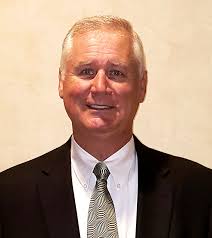Making the right choice of a financial advisor is as important as the advice you will get from these experts. For a physician, things get trickier because you need someone with a background in handling your kind of portfolio.
Whatever you do, never rush the process of hiring but instead invest time to research to get a professional who puts you first the same way you do with your patients. These experts are invaluable in different aspects of your financial life from taxes, estate planning, employee benefits planning, insurance to budgeting and much more.
Getting Started
This is the trickiest part but if you get it right you are on your way to success through invaluable financial advice. The internet offers you a plethora of resources that link you with industry experts. These include websites run by the industry’s professional bodies such as Financial Planning Standards Council (FPSC), Certified Financial Planner Board and Financial Planning Association among others.
Asking the Right Questions
Once you visit these websites you need to create a list of credible professionals. This is not as easy as it might sound and as such, you need some yardstick to guide you. Before including any financial expert on your shortlist, make sure you assess some of these factors:
- Credentials and Certifications: Education and professional background of your advisor largely determines how effective they will be. Considering they will play a large role in your financial life, you must ensure they hold solid credentials, such as Certified Public Accountant (CPA), Personal Financial Specialist (CPA/PFS), Chartered Financial Consultant (ChFC) or Chartered Financial Analyst (CFA). You must ask which certification they hold before hiring.
- Reputation: In financial advisory, it is common for clients to make complaints regarding any ineffective financial expertise they get. High net individuals (HNIs) are always filing claims against their former planners and you must avoid this by asking about any disciplinary action taken against the firm. You should also verify this by visiting FINRA or Securities and Exchange Commission (SEC) complaint pages to ascertain their disciplinary history.
- Payment structure: To choose the right financial advisor, make sure you get a clear method of compensation. This will help avert future costly legal tussles. Ask which payment method they use from the common four. Some will ask for a salary while others go for commissions based on the value of transactions made. Another common method of payment is fee-for-service only, which is an hourly agreed rate or a flat rate for a comprehensive financial plan. There are also those who combine fees and commissions. Whatever you do make sure you ask about the method to be used and assess the pros and cons.
- Range of services: This is one of the most important questions you must ask your financial advisor. You need to assess your needs as a doctor because your practice’s model varies from other clients say lawyers or retail owners. A reliable advisor must provide a scope of services that dovetail your needs. Consider crucial aspects of your practice and personal life including accounting, tax, cash flow advice, retirement plan, estate planning, liability insurance strategies and any other service you feel is essential for your practice.
Bottom-line
Choosing your advisor on financial matters needs a well-laid plan. You must assess their professionalism, dedication to your needs, communication ability, future outlook and experience in the industry.
Once you have assessed all your needs, it becomes easy to interview these experts to hire the best. Experts say that the best hire will be the person who listens and thus understands exactly what you need. With a checklist of the questions to use, it becomes easy to pick the best person to represent your financial interests.

Rick Pendykoski is the owner of Self Directed Retirement Plans LLC, a retirement planning company based in Goodyear, AZ. He has over three decades of experience working with investments and retirement planning, and over the last ten years has turned his focus to self-directed ira accounts and alternative investments. If you need help and guidance with traditional or alternative investments, call him today (866) 639-0066.




